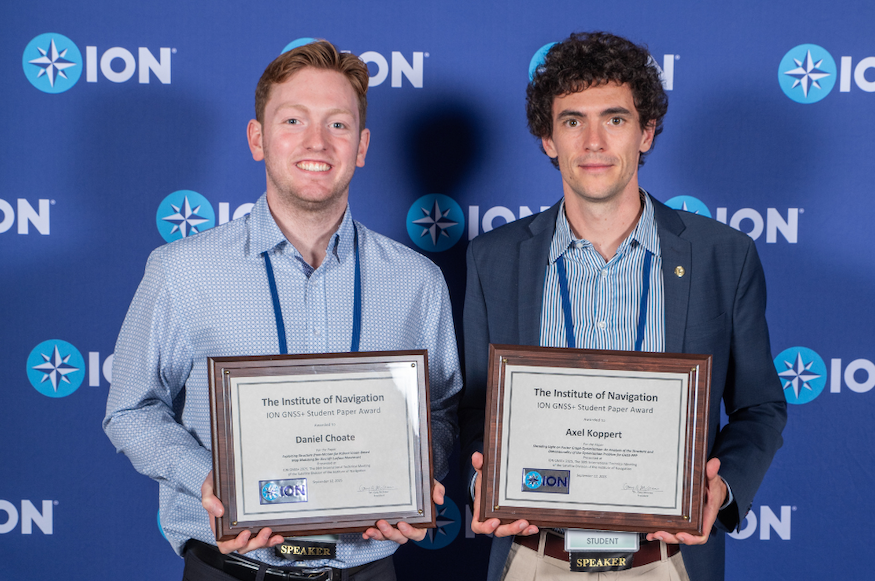Ph.D. student wins Best Paper at ION GNSS+

Mechanical Engineering Ph.D. student Dan Choate was named one of two winners of the Student Paper Award at the Institute of Navigation (ION) GNSS+ Conference, the world’s largest annual gathering focused on global navigation satellite systems. His award-winning paper, “Exploiting Structure-from-Motion for Robust Vision-based Map Matching for Aircraft Surface Movement,” explores new methods to support the safe automation of aircraft movement on airport surfaces, including runways, taxiways, and ramp areas.
Choate is currently supported by a NASA University Leadership Initiative (ULI) grant that advances research in high-integrity navigation systems for autonomous aircraft operations. His work applies cutting-edge vision-based techniques to an increasingly urgent challenge: ensuring safety as airports prepare for growing passenger demand and the introduction of more autonomous systems.
“There's still a great deal to explore, especially when it comes to vision-based navigation,” said Choate. “The applications of our work can extend beyond aerial vehicles to all types of autonomous systems and robotics. As autonomous navigation, robotics, and AI continue to expand rapidly, ensuring safety-critical and reliable solutions will be essential to sustaining progress and building trust in the field.”
At Tufts, Choate conducts his research in the Automated Systems and Robotics (ASAR) Laboratory, led by Professor and Department Chair Jason Rife. “His passion for the subject and his commitment to high-integrity solutions make for an incredibly productive and collaborative environment,” said Choate, speaking about Rife’s influence on his work. He also credits mentorship from Dr. Matthew McDermott, a former ASAR lab member, for helping him transition from undergraduate studies to contributing meaningful research early in his Ph.D. journey.
With a research focus on computer vision, state estimation, and embedded systems, Choate’s expertise lies in high-integrity navigation for autonomous vehicles. His project experience also spans to microcontroller design, wireless communication networks, autonomous mobile robots, and simultaneous localization and mapping (SLAM) frameworks.
ION GNSS+ is the world’s largest annual conference on global navigation satellite systems (GNSS), bringing together leaders from academia, government, and industry. The Student Paper Competition recognizes promising young researchers from leading GNSS institutions worldwide, with only one student per institution eligible to win.
Choate’s paper was recognized for its technical depth, innovation, clarity, and timeliness, applying state-of-the-art computer vision techniques to a pressing real-world problem. Looking ahead, he hopes his research will contribute not only to safer airports but also to a broad range of autonomous systems across industries.
Department:
Mechanical Engineering